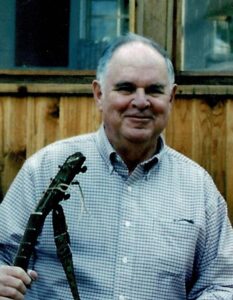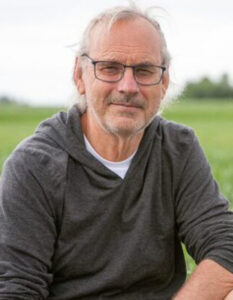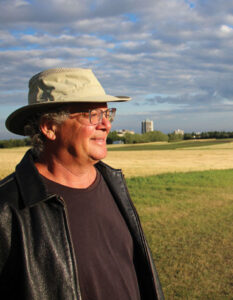Conference Awards
Bushnell-Roelfs Memorial Award for Early-Career Researchers
The board of EMCRF recognizes excellent research by an early-career rust or mildew worker by this award. The winner will give an invited lecture at the conference and will have accommodation and travel expenses reimbursed up to a maximum of €1800. Applicants should either have graduated with a PhD or equivalent no earlier than 2019, or still be studying for a graduate degree. Applicants in a tenure-track or senior position will not be considered.
Candidates are requested to send the conference organizers tgartner@ualberta.ca and gurcharn.brar@ualberta.ca and copy to the chair of the EMCRF (mogens.hovmoller@agro.au.dk; subject line: Bushnell-Roelfs Memorial Award 2025):
- An abstract of their research (maximum 250 words text and one Figure or Table on 1 page),
- A statement describing the contribution that they have made personally to the research (maximum 250 words), and
- A short CV of maximum two pages.
They must also ask their postgraduate or postdoctoral supervisor to send a confidential letter of recommendation to the EMCRF and the conference organizers; it is the applicant’s responsibility to arrange this. By entering the competition, applicants accept that the selection panel’s decision is final. The deadline for receipt of these documents is March 15, 2025; no applications received after that date will be considered. The winner will be notified no later than March 28, 2025.
William R. Bushnell (August 8, 1931 – February 4, 2022)
 Dr. Bill Bushnell earned his B.A. from the University of Chicago in 1951, and his B.S. and M.S. in Botany from Ohio State University in 1953 and 1955, respectively. He then went on to his Ph.D. in Botany at the University of Wisconsin with distinguished Professor Paul J. Allen where he investigated the physiology of the “green island effect” in barley, which is caused by infection of the powdery mildew fungus Blumeria graminis. He received his Ph.D. in 1960 and was immediately hired by the USDA-Agricultural Research Service’s Cereal Rust Laboratory (CRL) on the St. Paul campus of the University of Minnesota. Bill spent his entire career with the CRL until his 2003 retirement.
Dr. Bill Bushnell earned his B.A. from the University of Chicago in 1951, and his B.S. and M.S. in Botany from Ohio State University in 1953 and 1955, respectively. He then went on to his Ph.D. in Botany at the University of Wisconsin with distinguished Professor Paul J. Allen where he investigated the physiology of the “green island effect” in barley, which is caused by infection of the powdery mildew fungus Blumeria graminis. He received his Ph.D. in 1960 and was immediately hired by the USDA-Agricultural Research Service’s Cereal Rust Laboratory (CRL) on the St. Paul campus of the University of Minnesota. Bill spent his entire career with the CRL until his 2003 retirement.
Bill grew up in a household steeped in reading and learning. He loved working with people who had traveled the world over, and he enjoyed learning by doing. He was an accomplished, and largely self-taught, guitar and banjo player. Even in his early 30s, he was a well-known researcher in the physiology of powdery mildew and rust diseases of cereal plants. He traveled widely and was an invited speaker at many national and international conferences. Regarded by many of his peers as “a scientist’s scientist”, researchers from all over the world came to Minnesota to confer with his group. Throughout his 40+ years Bill was an Adjunct Faculty and Graduate Faculty member of the Department of Plant Pathology at Minnesota where he collaborated with several faculty and investigators in Germany, Japan, England, Wales and Israel.
Dr. Bushnell was a member of the American Phytopathological Society, the American Society of Plant Physiologists, and the American Association for the Advancement of Science – among others. He served as an associate editor for the journal Phytopathology and as a senior editor of the journal Physiological and Molecular Plant Pathology. In addition, he was an author and a co-editor on a 1984 two-book series entitled The Cereal Rusts; and served in the same capacity for a 2002 book entitled The Powdery Mildews: A Comprehensive Treatise. He was a Fellow of the American Society of Phytopathology and was elected to Sigma Xi (the International Honor Society for Scientific Research). He received the E.C. Stakman Award (the Department of Plant Pathology’s highest award).
Alan P. Roelfs (November 18, 1936 – June 17, 2022)

Dr. Alan Roelfs received his B.S. and M.S. degrees from Kansas State University in 1959 and 1964. In 1966, he started a position as Plant Pathologist with USDA Animal and Plant Health Inspection Service (APHIS) in the Cereal Rust Laboratory (CRL) on the St. Paul campus of the University of Minnesota while pursuing a Ph.D. in Plant Pathology. Upon earning his Ph.D. in 1970, he was promoted to a USDA-ARS Research Plant Pathologist at the CRL, and he became an adjunct faculty of Department of Plant Pathology. He continued his career at the CRL from 1970 through 1993, serving as Acting Director in 1981.
Dr. Roelfs devoted his career to cereal rusts, particularly stem and leaf rust of wheat. His vast experience in rust surveys served as a foundation for important contributions to rust epidemiology and to understanding complex interactions among small grains and rust fungi. His research with James Groth and other colleagues led to major advances in the population genetics of plant pathogens, culminating in their classic work on population structure of the wheat stem rust fungus in the Great Plains of the USA. With Bill Bushnell, he co-edited the two-volume treatise on The Cereal Rusts a comprehensive treatment of all aspects of host-parasite interactions and biology of cereal rust fungi. In recognition of his outstanding research contributions, Dr. Roelfs was named a Fellow of the American Phytopathological Society in 1986.
Dr. Roelfs was the foliar disease expert on the National Academy of Science delegation to China for wheat studies in 1976, was twice invited to serve as consultant for epidemiology of cereal rusts with the Intra-American Institute for Agricultural Research based in Brazil; and was an FAO consultant on wheat diseases in Pakistan. He also served as an advisor for cereal disease research in India, Mexico, and Morocco. His presence at the Cereal Rust Lab served as a magnet for visiting scientist from all over the world.
Alan retired from the USDA-ARS Cereal Rust Laboratory on January 2, 1994, after 32 years with the USDA and 23 years in the Department of Plant Pathology at the University of Minnesota. Nevertheless, he maintained several active research interests including studies of the biology and evolutionary relationships of rusts in the Puccinia recondita (leaf rust) species complex, served as a national coordinator of research on Karnal bunt, consulted on the emerging virulent wheat stem rust race (Ug99) in Africa, and provided assistance in rust race identification in Syria.
Dr. Pierre Hucl Early-Career Award (Postdoctoral Fellow or PhD Student)
 Dr. Pierre Hucl is a partly-retired wheat breeder from Crop Development Centre (CDC) of the University of Saskatchewan who has released more than 40 crop varieties, mainly wheat. These varieties have not only reinforced western Canadian agriculture but also played a pivotal role in the region’s value-added industry, contributing to billions of dollars in farm-gate receipts. A notable achievement for Hucl — who held the Strategic Research Program Chair in Canada Western Red Spring (CWRS) Wheat, Specialty Wheats, and Canaryseed Breeding and Genetics for 33 years—is the development and release of the first hairless canaryseed variety. This groundbreaking innovation not only established Saskatchewan as a global leader in producing and exporting canaryseed, but also opened doors to a growing market due to the seed’s health benefits. The hairless canaryseed varieties developed by Hucl made harvesting and processing easier by eliminating the tiny, sharp spikes from the hull, which are a major skin and lung irritant.
Dr. Pierre Hucl is a partly-retired wheat breeder from Crop Development Centre (CDC) of the University of Saskatchewan who has released more than 40 crop varieties, mainly wheat. These varieties have not only reinforced western Canadian agriculture but also played a pivotal role in the region’s value-added industry, contributing to billions of dollars in farm-gate receipts. A notable achievement for Hucl — who held the Strategic Research Program Chair in Canada Western Red Spring (CWRS) Wheat, Specialty Wheats, and Canaryseed Breeding and Genetics for 33 years—is the development and release of the first hairless canaryseed variety. This groundbreaking innovation not only established Saskatchewan as a global leader in producing and exporting canaryseed, but also opened doors to a growing market due to the seed’s health benefits. The hairless canaryseed varieties developed by Hucl made harvesting and processing easier by eliminating the tiny, sharp spikes from the hull, which are a major skin and lung irritant.
Hucl’s impact on food security has been profound, with his wheat varieties demonstrating improved yields, disease resistance, and qualities specifically tailored for the baking industry. His research focuses on breeding wheat varieties that are highly resistant to the wheat disease Fusarium Head Blight (FHB), which poses a threat to the worldwide wheat market due to the harmful mycotoxin found in infected wheat kernels. By developing FHB-resistant varieties, Hucl played a role in ensuring the safety and quality of wheat products for both domestic and international consumers.
Cereal Breeding Lab (CBL) of University of Alberta is sponsoring this award for an early-career post-doctoral or PhD student researcher who has made significant contributions in cereal breeding research, particularly in areas of breeding for disease resistance. The winner will give an invited lecture at the conference and will have conference-related expenses reimbursed up to a maximum of CAD 2,000. Applicants in a tenure-track or senior position will not be considered.
Candidates are requested to send the conference organizers tgartner@ualberta.ca and gurcharn.brar@ualberta.ca; subject line: Dr. Pierre Hucl Early-Career Award.
- An abstract of their research (maximum 250 words text and one Figure or Table on 1 page),
- A statement describing the contribution that they have made personally to the research (maximum 250 words), and
- A short CV of maximum two pages.
They must also ask their postdoctoral supervisor/PhD supervisor to send a confidential letter of recommendation to the conference organizers; it is the applicant’s responsibility to arrange this. By entering the competition, applicants accept that the selection panel’s decision is final. The deadline for receipt of these documents is March 15, 2025; no applications received after that date will be considered. The winner will be notified no later than April 5, 2025.
Dr. Dean Spaner Early-Career Award (Postdoctoral Fellow or PhD Student)
 Dr. Dean Spaner is a retired wheat breeder from University of Alberta. Spaner’s career first started at the U of A in 1977 as a summer student in the canola breeding program, although he completed his undergraduate degree at the University of Guelph. Early in his career, Spaner worked as a canola and soybean breeding technician under the tutelage of Wally Beversdorf, the first person to successfully transfer a triazine resistance gene into canola. Plant breeding and the development of improved cultivars adapted to western Canada’s varied and harsh growing conditions is a continual process and of utmost importance to the Canadian agricultural economy. The Parkland region of western Canada has as a primary requirement, cultivars that mature within a reduced frost-free period relative to other parts of the prairies. As the most northerly wheat breeding program in Canada, Dr. Spaner has been highly effective in transforming his location into a recognized research advantage. Focused on the development of Canada Western Red Spring wheat cultivars, Canada’s world-renowned premier quality wheat, Dr. Spaner has registered (or received support to register) 16 CWRS and 3 CPS cultivars in the past 13 years. The majority of these lines are early maturing, which reduces production risk and improves profitability for producers in short-season zones.
Dr. Dean Spaner is a retired wheat breeder from University of Alberta. Spaner’s career first started at the U of A in 1977 as a summer student in the canola breeding program, although he completed his undergraduate degree at the University of Guelph. Early in his career, Spaner worked as a canola and soybean breeding technician under the tutelage of Wally Beversdorf, the first person to successfully transfer a triazine resistance gene into canola. Plant breeding and the development of improved cultivars adapted to western Canada’s varied and harsh growing conditions is a continual process and of utmost importance to the Canadian agricultural economy. The Parkland region of western Canada has as a primary requirement, cultivars that mature within a reduced frost-free period relative to other parts of the prairies. As the most northerly wheat breeding program in Canada, Dr. Spaner has been highly effective in transforming his location into a recognized research advantage. Focused on the development of Canada Western Red Spring wheat cultivars, Canada’s world-renowned premier quality wheat, Dr. Spaner has registered (or received support to register) 16 CWRS and 3 CPS cultivars in the past 13 years. The majority of these lines are early maturing, which reduces production risk and improves profitability for producers in short-season zones.
Cereal Breeding Lab (CBL) of University of Alberta is sponsoring this award for an early-career post-doctoral researcher or PhD student from a developing country who has made significant contributions in cereal breeding research, particularly in areas of breeding for disease resistance. The winner will give an invited lecture at the conference and will have conference-related expenses reimbursed up to a maximum of CAD 2,000. Applicants in a tenure-track or senior position will not be considered.
Candidates are requested to send the conference organizers tgartner@ualberta.ca and gurcharn.brar@ualberta.ca; subject line: Dr. Dean Spaner Early-Career Award:
- An abstract of their research (maximum 250 words text and one Figure or Table on 1 page),
- A statement describing the contribution that they have made personally to the research (maximum 250 words), and
- A short CV of maximum two pages.
They must also ask their postdoctoral supervisor/PhD supervisor to send a confidential letter of recommendation to the conference organizers; it is the applicant’s responsibility to arrange this. By entering the competition, applicants accept that the selection panel’s decision is final. The deadline for receipt of these documents is March 15, 2025; no applications received after that date will be considered. The winner will be notified no later than April 5, 2025.